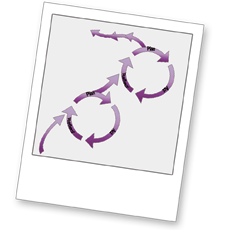
Action research projects
The Subject Centre invited bids for £1,000 for practitioners wishing to undertake small scale action research projects in languages, linguistics or area studies in UK higher education.
Timescale
January, 2008 - June, 2009
Key contact(s):
John Canning
Subject Centre for Languages, Linguistics and Area Studies
j.canning@soton.ac.uk
Funded by:
Subject Centre for Languages, Linguistics and Area Studies
Successful bidders:
The following researchers have been funded under the LLAS Action Research Fund.
E-moderating and e-interaction: Learners and tutors learning about interaction through online tools
Doris Dippold, University of Plymouth
Literature in language and intercultural education and the construction of identity – an investigation into student response to Argentinian literary texts in the British university sector
Leticia Goodchild, University of East Anglia
Investigation into how the HE sector can effectively influence and support linguists and post 16 establishments in progression to languages at University and how the post-16 sector can ensure they meet language students needs in progression to HE
Henriette Harnisch, University of Wolverhampton
The construction and use of ideas about English as an international language
Rachel Wicaksono, York St John University
Project aims:
What is action research?

Discussions about the history of action research usually begin with the work of Kurt Lewin in the 1940s. Whilst most literature concerns educational action research (Dick 2006) an action research approach is also sometimes employed in community and organisation research. There are many definitions- this one is from McNiff (2002).
“Action research is a term which refers to a practical way of looking at your own work to check that it is as you would like it to be. Because action research is done by you, the practitioner, it is often referred to as practitioner based research; and because it involves you thinking about and reflecting on your work, it can also be called a form of self-reflective practice. The idea of self reflection is central. In traditional forms of research – empirical research – researchers do research on other people. In action research, researchers do research on themselves. Empirical researchers enquire into other people’s lives. Action researchers enquire into their own”
(McNiff 2002).
Funds available:
The Subject Centre invited bids for £1,000 for practitioners wishing to undertake small scale action research projects in languages, linguistics or area studies in UK higher education. Both experienced and less experienced researchers were welcome to apply.
Outcomes:
Researchers have two options for publication:
EITHER
- A report of around 5,000 words on the project for publication on the LLAS website by 30 June 2009 (subject to peer review).
OR
- An article for publication in a peer-reviewed journal. The journal chosen may be in languages, linguistics, area studies or higher education. The article must be submitted by 30 June 2009. LLAS staff can give advice on appropriate journals if needed.
Reports:
Deconstructing Gender Stereotyping through Literature in L2
Leticia Goodchild, University of East Anglia
Download report (Word file, 80Kb)
Abstract
While it is generally accepted that literature fosters (inter) cultural learning, few qualitative studies have sought to understand in what ways interculturality is developed. This article investigates the development of Spanish L2 students’ intercultural awareness through the reading of literary texts and partially reports on a two-semester action research project funded by the Higher Education Academy LLAS Subject Centre. The study draws its data from 36 final year Spanish Honours Language undergraduates in multicultural classes at a British university, who were exposed to a variety of Argentinian literary texts produced in the target language. This article describes students’ responses to a short story entitled ‘Norma y Ester’ by Carlos Gamerro and seeks to identify, describe and explain evidence of intercultural learning in their reactions and contributions. The results of the study indicate that literature can bridge geographical distances virtually in an in-between space where students cross borders to develop sensitivity towards otherness. Pedagogies for intercultural exploration through literature in L2 educational contexts are now being reconceptualised, therefore this study not only contributes to a growing body of research, but it also represents a slice of students’ development of intercultural learning in flight.
Whose needs are these anyway: working together to solve problems in English as a lingua franca
Rachel Wicaksono, York St John University
Download report (Word file, 136Kb)
Abstract
This study describes a two year action research project to monitor the implementation of a new assessment brief on an undergraduate programme of study. In the data collected for the project, UK and International students interview each other to obtain information for an assessed task on learning and teaching English as an additional language. The data is explored for insights into the consequences of the new assessment brief. In the second year of the project, the assessment brief is adjusted as a result of the data analysis and the subsequent consequences observed. In the final stage of the project, a ‘learning object’ for university students and staff who may be interested in lingua franca-related issues is developed.
References:
Dick, B. (2006) Action research literature 2004-2006: Themes and trends, Action Research 4 (4), 439-458.
Links:
McNiff, J. (2002) Action research for professional development: Concise Advice for new researchers.
www.jeanmcniff.com/Copy%20booklet%20for%20web%20site.doc
ActionResearch.net
www.actionresearch.net
Educational Action Research: An International Journal
www.tandf.co.uk/journals/titles/09650792.asp
